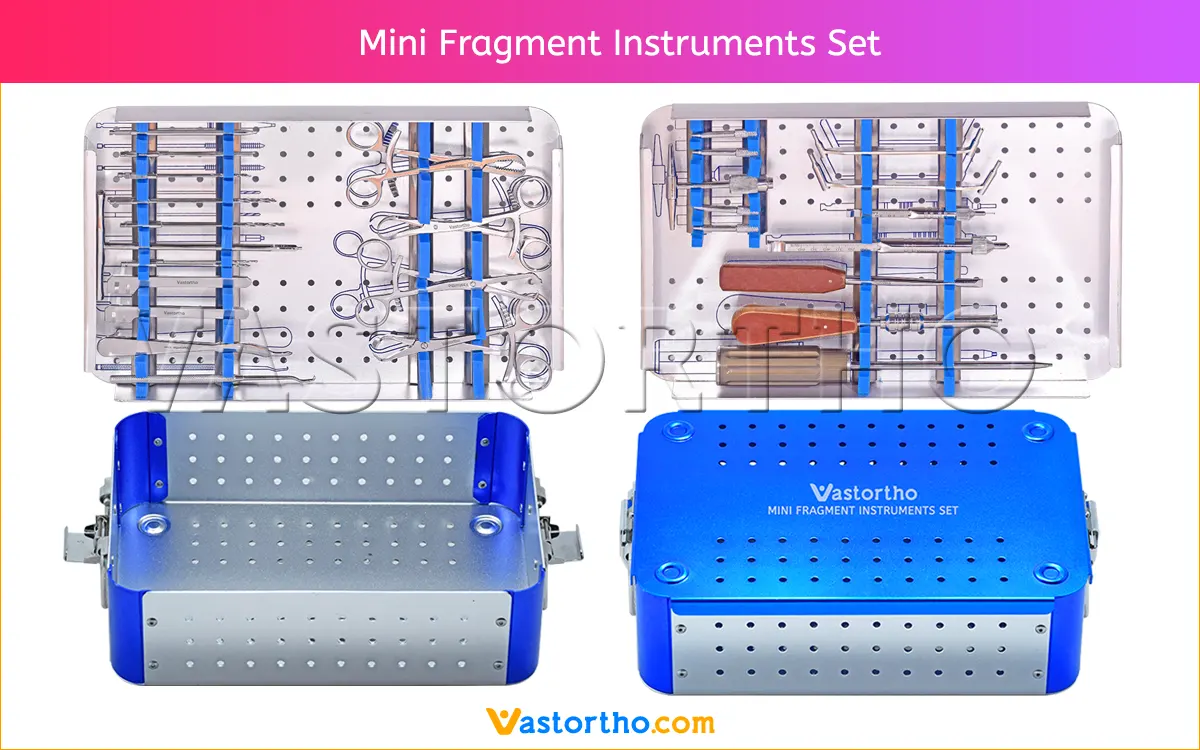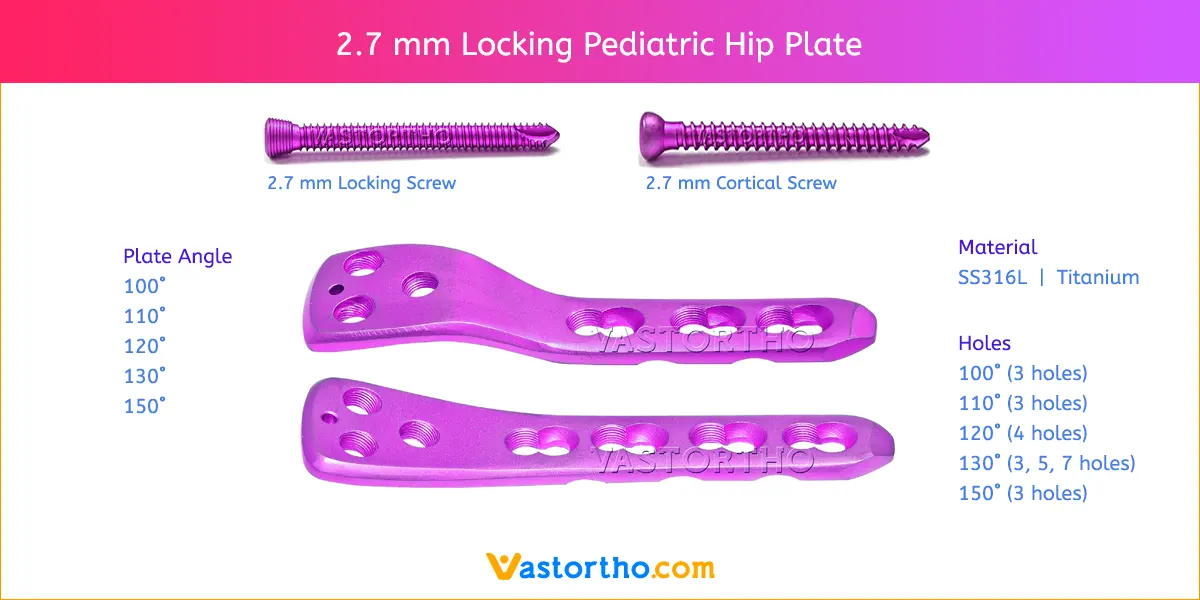2.7 mm Locking Reconstruction Plate Curved Specification, Uses, Sizes & Surgical Instruments.

2.7 mm Locking Reconstruction Plate Curved Specification
- Plates available holes are 4, 6, 8, 10, 12, 14 and 16.
- Available in both Titanium and Stainless steel.
- Plate has combi holes and round holes. Combi holes allow fixation with locking screws in the threaded section and cortex screws in the dynamic compression unit section for compression.
- The shaft holes accept 2.7 mm locking screws in the threaded portion or 2.7 mm cortical screws in the compression portion.
- Locking screws offer a fixed-angle construct to support the articular surface, reduce the need for bone graft, and obtain fixation in osteoporotic bone.
- 2.7 mm Locking Reconstruction Plate Curved allow implant placement to address the individual fracture pattern.
- Limited-contact surface reduces bone-to-plate contact and helps to preserve the periosteal blood supply.
- Choice of different lengths of plate eliminates the need to cut plates.
- Polished surface and rounded edges minimize potential for tendon adhesion.
- Low plate and screw profile minimizes potential for tendon and soft tissue irritation.
- Smaller plates and screws address fracture fragments individually, with less overall implant bulk
- locking plate increases construct stability, decreases risk of screw back-out and subsequent loss of reduction. It also reduces the need for precise anatomic plate contouring and minimizes the risk of stripped screw holes.
- A complete Instruments Set is available for 2.7 mm Locking Reconstruction Plate Curved. General Instruments are available for this plate such as Plate Bending Press, Plate Holding Forceps, Plate Bending Pliers, Bone Holding Forceps, Bone Elevators, Bone Cutter, Bone Nibbler, Depth Gauge, Sleeve, Screw Driver, Trocar Sleeve etc.
2.7 mm Locking Reconstruction Plate Curved Uses
2.7 mm Locking Reconstruction Plate Curved is used in the reconstruction of the Pelvic fractures.












